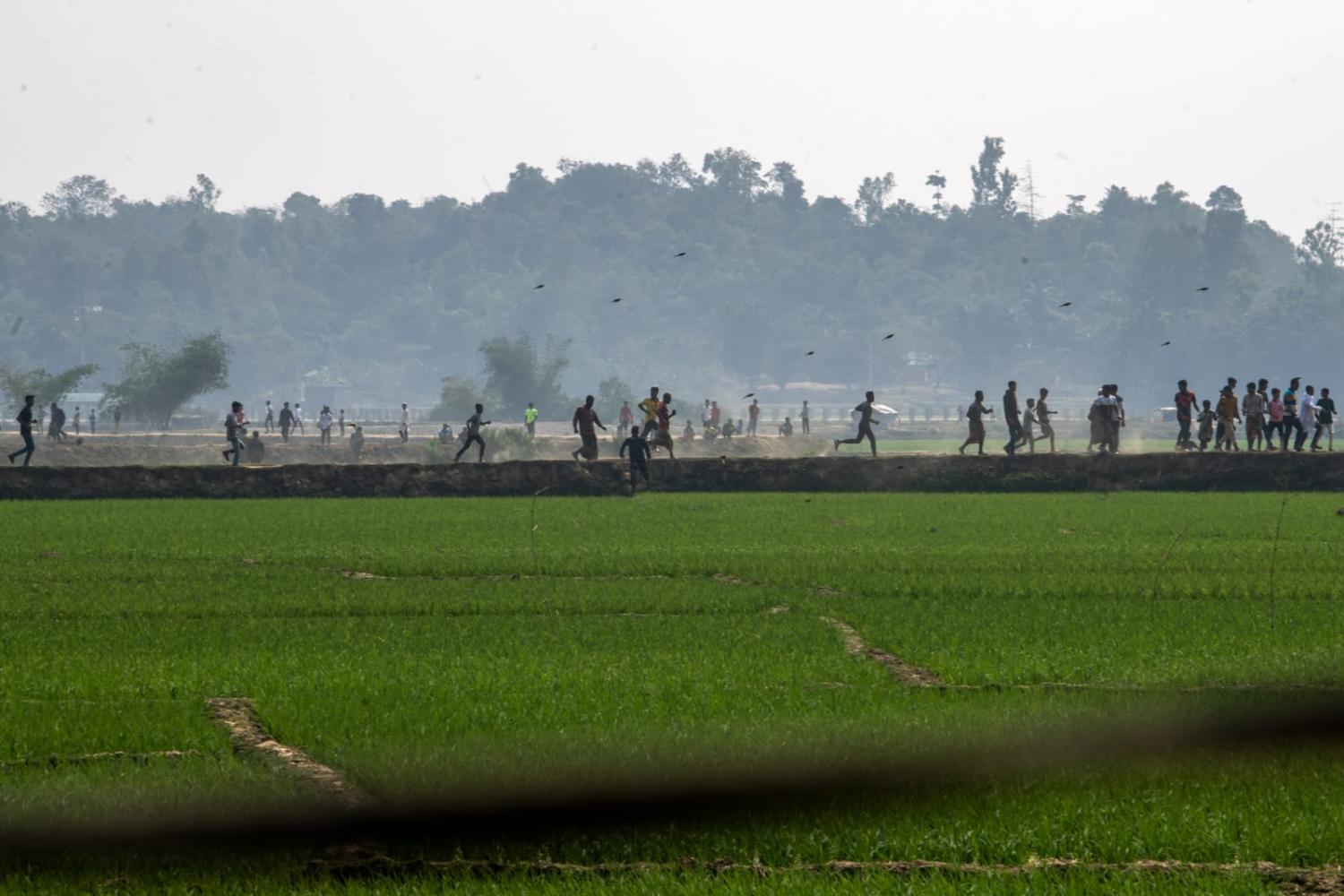Six years ago, a calculated “cleansing operation” conducted by the Myanmar Armed Forces and aided by local militias resulted in the expulsion of more than 750,000 Rohingyas from the northern Rakhine State in Myanmar. Now, the same Myanmar Armed Forces are forcibly conscripting the Rohingyas in order to fight against the Rakhine insurgents. This cynical exploitation carries implications for all involved – including neighbouring Bangladesh, host to most Rohingya refugees.
In the latest manifestation of the civil war, the Three Brotherhood Alliance, composed of the Myanmar National Democratic Alliance Army (MNDAA), the Ta’ang National Liberation Army (TNLA), and the Arakan Army, launched “Operation 1027”, named for the date 27 October 2023. The fighting encompassed several administrative divisions of Myanmar, including the Shan, Rakhine and Chin states, and the Mandalay and Sagaing regions.
While a truce was agreed upon in January in Shan State, intense fighting continues in Rakhine State. So far, the Arakan Army has captured eight townships in the Rakhine State and is currently advancing on Sittwe, the capital and the headquarters for the Western Command of the Tatmadaw, as the Myanmar Armed Forces is known. The Tatmadaw has lost several battalions, major bases, outposts, and naval vessels to the Arakan Army, and is struggling to maintain control over the rest of Rakhine State.
Amid this situation, the Tatmadaw has sought to replenish its manpower losses by introducing conscription under the 2010 People’s Military Service Law. Under this measure, all men aged between 18 and 35 and all women aged between 18 and 27 are eligible for conscription for a period of two years, while professionals up to the age of 45 are required to serve in the military. This conscription drive, scheduled to start in April, has left people fearful and led to a fresh exodus from government-controlled territory.
As a part of the process, the Tatmadaw has started to tap into a hitherto untapped source of personnel in Rakhine State – the Rohingyas. At present, approximately 630,000 Rohingyas remain in Rakhine State, according to the United Nations, many in the camps for internally displaced persons (IDPs), and can be pressed to serve as “cannon fodder” for the undermanned Tatmadaw, whether by negotiation or intimidation.
For instance, a Teknaf-based news portal reported that the Tatmadaw representatives met with Rohingya leaders in the Maungdaw District in February and offered to arm the Rohingyas against the Rakhines. The Tatmadaw has reportedly offered the Rohingyas freedom of movement in exchange for the formation of local militias to fight against the Arakan Army.
In addition, the Tatmadaw has supposedly promised citizenship to the Rohingya refugees in Bangladesh in exchange for their military service.
The Tatmadaw was also reported to have forcibly conscripted more than 100 Rohingyas from the Kyauk Ta Lone IDP camp in the Kyaukphyu Township, and has abducted family members of those Rohingyas who have sought to dodge conscription.
But the Tatmadaw’s conscription of the Rohingyas is illegal under Myanmar’s own laws. The 2010 People’s Military Service Law is applicable only to the citizens of Myanmar, and Rohingyas have long been deprived of Myanmar citizenship under the 1982 Citizenship Law. But the Tatmadaw also has a long history of inflaming ethnic tensions as part of a “divide and rule” strategy. Buddhist ethnic groups of Myanmar have long distrusted the Muslim Rohingyas, and the Rohingyas’ collaboration (forcible or otherwise) with the embattled Tatmadaw would further inflame the opinions of anti-government groups. While the United League of Arakan (ULA), the political wing of the Arakan Army, has pledged to accommodate the Rohingyas in a potentially autonomous or independent Rakhine State, they still refuse to acknowledge the distinct identity of the Rohingyas and expect them to submit to Rakhine domination.
The intense fighting in Rakhine State has led to concern about a new influx of Rohingya refugees into Bangladesh. Tensions over border crossings are already heightened and the Tatmadaw’s forcible conscription drive could induce more Rohingyas to flee, complicating the situation in southeastern Bangladesh. The Rohingya refugee camps in Cox’s Bazar have already mutated into hotbeds of political violence and criminal activity. If the Rohingyas in the camps receive military training and weapons from the Tatmadaw, the situation can deteriorate further.
Hence, the Tatmadaw’s forcible conscription of the Rohingyas is not only illegal and inhuman, but also a threat to regional peace and stability.

